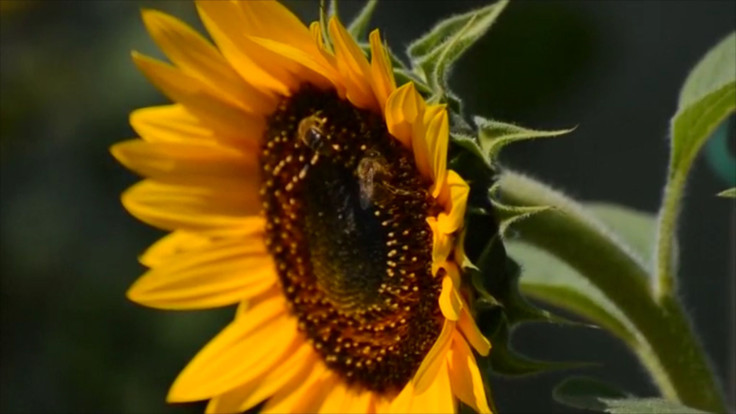Bees Like Caffeine As Much As We Do, But It Makes Them Less Productive [VIDEO]

Plants are tricking honey bees into pollinating their flowers by producing caffeine, successfully fooling the insects into repeatedly returning, even if their nectar is of poor quality. Jim Drury reports.
Transcript:
Many of us need a strong coffee in the morning to get going. It seems the humble honey bee also finds caffeine compelling.
University of Sussex researchers believe plants produce caffeine in their nectar to fool bees into thinking it contains more sugar than it does. The insects will repeatedly visit those flowers, helping the plants maximize pollination.
Two false flowers were set up -- both containing sucrose and water, but one with caffeine as well. ID numbers were glued on to those bees exposed to caffeine. The bees were then sent back to the hive.
"What we found was that caffeine would have the effect of more sugar. And the one that did have caffeine attracted more bees, but in particular the bees who were foraging made more dances, about four times as many dances," said Francis Ratnieks, professor of apiculture at the University of Sussex.
The bees' waggle dance influences the behavior of others in the hive. Many bees were directed to revisit sites where caffeinated nectar was previously found, even after the feeder ran dry.
The team thinks plants may be lacing their nectar so they can pass off substandard forage.
"What the caffeine is doing is the plant manipulating the bee in a way which is good for the plant, but not so good for the bee because the bee is kind of being tricked into thinking that the nectar is of a higher quality -- that is, it has more sugar than it really does," said Ratnieks.
It's a reminder that, although mutually dependent, the interests of plants and pollinators can conflict.
By giving the honey bees a caffeine buzz, it seems that plants are leading them a merry dance.
© Copyright IBTimes 2024. All rights reserved.






















